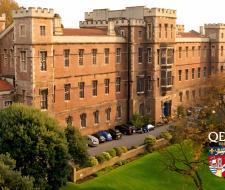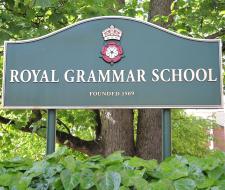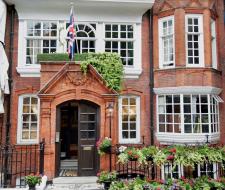41 best boys only schools in England UK
This content was developed and approved with active participation of Lucy Heller.
In the process of preparing the material, we referenced the following sources:
- https://study-uk.britishcouncil.org/plan-studies/ways-learning/boarding-schools
- https://www.ranker.com/list/best-all-boys-prep-schools/school-buddy.
-
 from 6903.00 £ / year
from 6903.00 £ / year -
 from 4652.00 £ / term
from 4652.00 £ / term -
 from 6690.00 £ / term
from 6690.00 £ / term -

 United KingdomBristolCurrently watching: 2
United KingdomBristolCurrently watching: 2 -

-

 United Kingdomnear LondonCurrently watching: 1
United Kingdomnear LondonCurrently watching: 1 -

-

-

-

 United Kingdomnear LondonCurrently watching: 8
United Kingdomnear LondonCurrently watching: 8
Separate studying is still one of the most popular forms of education in the UK. The British always pay great attention to the quality of fundamental education of young ladies and gentlemen. Therefore, separate educational institutions, where young gentlemen and ladies can more closely focus on studying academic subjects and etiquette, are still really popular. TOP-20 elite boys' schools are included in the national rating of the best educational institutions: graduates demonstrate the highest level of academic preparation, successfully pass profile examinations for high scores and enter the best universities around the world.
Alternative destinations
Why Choose Top Boys Schools in the UK?
Boys schools in the UK, which can operate as day schools, are sought after globally. The merits of enrolling in one of these institutions extend beyond just stellar academic training. Such schools inculcate invaluable life skills, helping shape a young man's character for both his professional and personal life. The camaraderie among students in these institutions fosters leadership qualities, promotes responsibility, encourages expression, and strengthens the ability to defend one's perspectives. Furthermore, the healthy competition present motivates students to excel, nurturing a drive to be the best version of themselves - an attribute immensely valued in today's world.
Catering to the Unique Developmental Needs of Boys Understanding the distinctive growth and developmental needs of boys, these schools emphasize a well-rounded curriculum. Sports and physical activities are paramount, ensuring students maintain peak physical health and resilience. Boys schools in the UK are renowned for their discipline, as educators recognise the innate enthusiasm and vigor of their students. As a result, they strive to instill an appreciation for structure and appropriate behavior.
While these institutions focus on single-gender education, they do not operate in isolation. Interaction with the opposite gender is facilitated through collaborative activities, competitions, excursions, and events with other schools. This ensures students gain the essential experience of interacting with the opposite gender without diverting from their primary academic objectives.
International Boys Schools: A Glimpse Beyond the UK It's worth noting that while the UK boasts a plethora of top boys schools, countries like Switzerland also have renowned establishments catering to young men's education.
Making the Right Choice with SMAPSE
To assist with your selection, SMAPSE has curated a list of the top 20 boys schools in the UK. You can delve into detailed profiles of each institution, explore campus and residence photos, and read firsthand reviews from past students. We've also outlined the boys schools in UK fees to provide a clearer understanding of the investment. Costs may vary based on the school's status (private or public), its ranking, infrastructure, and holistic developmental opportunities provided to students.
Whether you're considering local options or international schools in the UK for boys, our comprehensive guide will steer you in the right direction.

What aspects and criteria do parents consider when choosing a school, in addition to academic success?
Accommodation conditions, sports opportunities, catering and additional clubs and clubs organized by the school, proximity to the school of residences or host families are very important.
How to apply into a boys' school in the UK?
To enter a boys' school in the UK, foreign students need to take several steps, requiring careful preparation and attention to detail. No matter what type of school you choose, a private or a state-funded institution, your decisions which you make, may significantly influence your chances of being admitted. Here's a guide, aimed at navigating you the application process:
-
Research and Shortlisting. Start by researching boys' schools in the UK. Look into their academic reputation, extracurricular offerings, values, and facilities. Create a shortlist of schools that align with your preferences and aspirations.
-
Admission Criteria. Each school has its own admission criteria, which might include academic performance, interviews, assessments, and references. Review the school's website or admission prospectus to understand these criteria thoroughly.
-
Application Form. Complete the school's application form accurately and neatly. This might involve providing personal information, academic records, and extracurricular achievements. Ensure that you meet all the submission deadlines.
-
Entrance Exams.When applying to many boys' schools, foreign students are required to take entrance exams. Usually, these exams are aimed at determining knowledge in subjects like English, mathematics, and reasoning. It is recommended to prepare for these exams well in advance by practicing sample papers and familiarizing yourself with the format.
-
Interviews. Sometimes, foreign students may be invited for an interview. Preparation for the interview stipulates learning the school's values, current events, and readiness to discuss your interests and ambitions. Project confidence and enthusiasm, and be yourself during the conversation.
-
References. Schools often require recommendations from your current school. Appeal to teachers who know you well and who can describe your academic abilities and individual characteristics.
-
Extracurriculars and Personal Statement. Note your extracurricular activities and hobbies in your application. A well-prepared personal statement can provide insight into your personality, interests, and motivations.
-
School Visit. If you have the opportunity, it is recommended to visit the schools you have chosen. Such visits allow you to get a sense of the environment, facilities, and the overall atmosphere. It's also an opportunity to ask questions and engage with current students and staff.
-
Waitlist and Offers. After completing the application process, you might receive offers from multiple schools. Consider your options carefully, taking into account factors like academics, location, and extracurricular opportunities.
-
Acceptance and Enrollment. When an offer is obtained, follow the school's instructions for accepting the offer and completing the enrollment process. This might stipulate submitting further documentation and paying a tuition fee.
Pay attention, that each boys' school may have its own specific requirements, so it's important to refer to the guidelines prepared by each institution. Begin your preparation in advance, stay organized, and demonstrate your strengths - all these will increase your chances of successful enrollment in a prestigious boys' school in the UK.
Costs and fees at boys' schools in the UK
Tuition fees at boys' schools in the UK can significantly range, which is stipulated by the type of institution, its location, infrastructure, ranking, and the educational programs offered. Usually, boys' schools in the UK are divided into two categories: state-funded (public) schools and private (independent) ones. Here's an overview of the costs and fees associated with each type:
Private (Independent) Boys' Schools: Private boys' schools in the UK are known for their high-quality education, state-of-the-art facilities, and diverse extracurricular activities. However, these excellent conditions for studying and leisure often involve significant financial resources from the child's parents. Tuition fees for private boys' schools may vary from several thousand to tens of thousands of pounds per term. Such variations are stipulated by such factors as the school's prestige and location. Usually the cost of studying includes tuition, access to facilities, and participation in some extracurricular activities.
In addition to tuition fees, foreign students should be prepared for extra expenses, including school uniform, educational materials, transportation, exam fees, and charges for optional extracurricular activities such as music lessons or sports clubs. Some schools also offer scholarships or bursaries based on academic or talent-based achievements, allowing to compensate the costs for talented students.
State-Funded Boys' Schools: Public schools in the UK function under government funding, providing more affordable education compared to private institutions. The public schools do not charge for studying. However, parents may need to pay for school uniforms, educational materials, equipment, and extracurricular activities. Public schools might also request voluntary contributions to support specific projects or initiatives.
It's worth mentioning that some state-funded boys' schools have specialisms, such as music, arts, or sciences, which could come with additional costs related to specialized equipment or resources. These schools often offer a strong academic foundation without the same financial burden as private institutions.
Financial Assistance and Scholarships: Both private and state-funded boys' schools may offer financial assistance options, allowing families to compensate for the costs of education. Awarding scholarships is based on academic results, sporting achievements, musical talents, or other specific criteria. Bursaries are usually means-tested and are designed to support students from lower-income backgrounds.
Attending a boys' school in the UK, no matter of this type - private or state-funded, foreign students should be ready to pay additional costs. It's recommended to carefully plan their budget for obtaining education. So, first of all, it is necessary to select a school according to knowledge level, financial opportunities, preferences and future goals of a child. Exploring scholarship and bursary opportunities can also help make these institutions more accessible to a wider range of students, ensuring that talented boys can benefit from the valuable educational experiences these schools offer.
Best UK boys private school rankings 2026
| № | A/A* % | Name | Day/Board | Boy/Girl | Day GBP | Board GBP |
|---|---|---|---|---|---|---|
| 1 | 95.80 | Winchester College | Boarding | Boys | 43,335 | |
| 2 | 95.30 | St Paul's School | Both | Boys | 26,556 | 39,966 |
| 3 | 87.00 | Tonbridge School | Both | Boys | 33,636 | 44,835 |
| 4 | 84.90 | Radley College | Boarding | Boys | 41,7 | |
| 5 | 82.00 | Whitgift School | Both | Boys | 21,24 | 41,55 |
| 6 | 80.20 | Abingdon School | Both | Boys | 21,6 | 44,07 |
| 7 | 80.00 | Warwick School | Both | Boys | 14,337 | 34,575 |
| 8 | 75.00 | Bedford School | Both | Boys | 20,949 | 35,43 |
| 9 | 73.30 | Sherborne School | Both | Boys | 31,8 | 40,125 |
| 10 | 72.30 | Loughborough Grammar School | Both | Boys | 14,205 | 34,485 |
| 11 | 70.00 | Shiplake College | Boarding | Boys (Co-ed 6th form) | 25,125 | 37,35 |
| 12 | 65.80 | Monmouth School | Both | Boys (Co-ed 6th form) | 16,599 | 34,167 |
